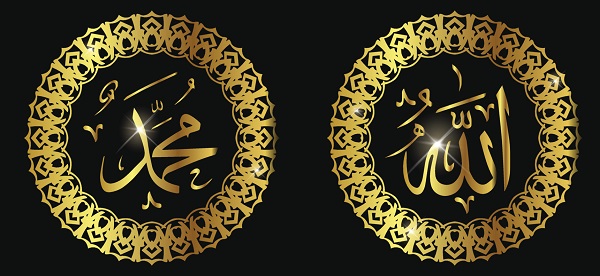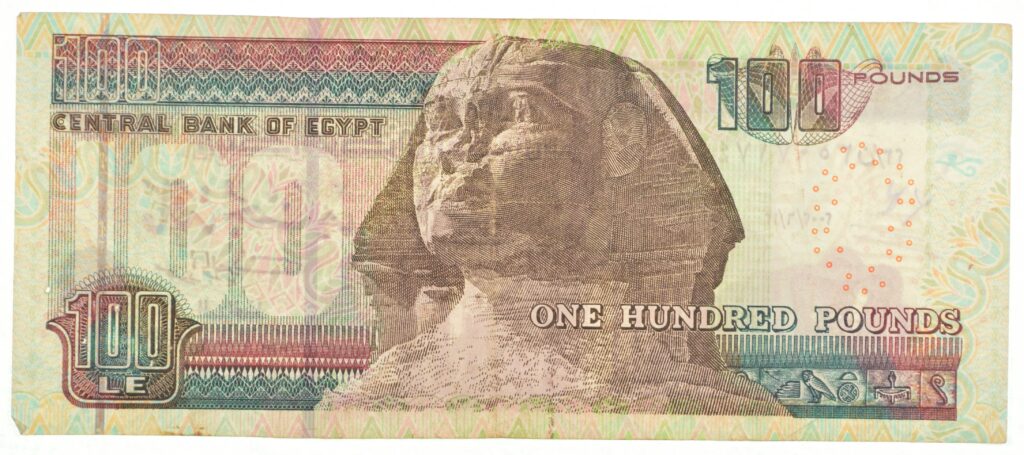The Holy Qur’an recounts the events when the Israelites made the golden calf idol. This occurred when the Prophet Musa PBUH left their camp to receive the Law.
The people of Moses made, in his absence, out of their ornaments, the image of calf, (for worship): it seemed to low: did they not see that it could neither speak to them, nor show them the way? They took it for worship and they did wrong.
The Heights (Al-A’raf) 7: 148
With that grave error committed, the Taurat then records that Allah issued a permanent command. This was the third command in the Ten Commandments:
You shall not make for yourself an image in the form of anything in heaven above or on the earth beneath or in the waters below. 9 You shall not bow down to them or worship them; for I, the Lord your God, am a jealous God, punishing the children for the sin of the parents to the third and fourth generation of those who hate me, 10 but showing love to a thousand generations of those who love me and keep my commandments.
Deuteronomy 5:8
No Images
It is clear that both Qur’an and the Taurat prohibit the making of images. Both declare that the images lead to idolatry, the worship of false images, instead of worshiping the True Creator.
Certainly any image that man makes is lifeless and without intelligent speech, like the golden calf that Harun PBUH made in error while the prophet Musa PBUH was away.
But can the Creator Himself create out of nothing that which is an adequate image of Himself? The creation of the world recounted in the Taurat declares that He did this. In its first chapter the Taurat records:
Then God said, “Let us make mankind in our image, in our likeness, so that they may rule over the fish in the sea and the birds in the sky, over the livestock and all the wild animals, and over all the creatures that move along the ground.”
27 So God created mankind in his own image,
Genesis 1:26-27
in the image of God he created them;
male and female he created them.
“In the Image of God”
What does it mean that God or Allah created mankind ‘in the image of God’? It does not mean that God has two arms and a head. Rather the Taurat means that our basic characteristics come from God. Fundamental non-physical characteristics of humans derive from like characteristics in Allah. In the Books, Allah can be sad, hurt, angry or joyful – the same emotions that we have. We make choices and decisions every day. Allah also makes choices and decisions. We can reason and Allah also reasons. We have the capacities of intellect, emotion and will because Allah had them first, and He made us in His image. He is the source of what we are.
We are self-aware and conscious of ‘I’ and ‘you’. We are not impersonal ‘its’. You are like this because Allah is this way. The God who sent the prophets is not a non-personality like the ‘Force’ in the movie series Star Wars. Because He made us in His image neither are we.
Why Do we like Beauty?
We also value art, drama and beauty. We need beauty in our surroundings. Music enriches our lives and makes us dance. We love good stories because stories have heroes, villains, and drama. Great stories put these heroes, villains and drama into our imaginations. We use art in its many forms to entertain, relax and refresh ourselves because God is an artist and we are in his image. It is a question worth asking: Why do we look for beauty in drama, music, dance, nature or literature? Daniel Dennett, an outspoken atheist and an expert on understanding the brain, answers from an atheist perspective:
“Why does music exist? There is a short answer, and it is true, so far as it goes: it exists because we love it and hence we keep bringing more of it into existence. But why do we love it? Because we find that it is beautiful. But why is it beautiful to us? This is a perfectly good biological question, but it does not yet have a good answer.”
Daniel Dennett. Breaking the Spell: Religion as a Natural Phenomenon. p. 43

Apart from Allah there is no clear answer to why all the forms of art are so important to us, and why we find them beautiful. From the Taurat’s point-of-view it is because God made things beautiful and enjoys beauty. We, made in His image, are the same. This teaching makes sense of our love of art.
The Beauty in Mathematics
Closely linked to aesthetic beauty is mathematics. Patterns from geometric ratios give rise to fractals and other shapes that we find beautiful and mathematically elegant. Watch this video explain the elegance of the Mandelbrot Set and ask why abstract concepts such as numbers seem to govern the behavior of the universe. And why we appreciate its beauty.
Why we are Moral
Being ‘made in God’s image’ explains our intrinsic sense of morality. We understand what ‘wrong’ behaviour is and what ‘good’ behaviour is – even though our languages and cultures are very different. Moral reasoning is ‘in’ us. As the famous atheist Richard Dawkins puts it:
“Driving our moral judgments is a universal moral grammar … As with language, the principles that make up our moral grammar fly beneath the radar of our awareness”
Richard Dawkins,The God Delusion. p. 223
Dawkins explains that right and wrong is built into us like our natural ability to learn language, but it is difficult for him to explain why we are like this. Misunderstandings happen when we do not acknowledge Allah giving us our moral compass. Take for example this objection from another famous atheist, Sam Harris.
“If you are right to believe that religious faith offers the only real basis for morality, then atheists should be less moral than believers.”
Sam Harris. 2005. Letter to a Christian Nation p.38-39
Harris misunderstands. The Taurat tells us that our sense of morality comes from being made in God’s image, not from being religious. And that is why atheists, like all the rest of us, have this moral sense and can act morally. But atheists do not understand why we are like this.
Why are we so Relational?
The starting point to understand yourself is to recognize that you are made in the Creator’s image. It is not hard to notice the importance people place on relationships. It is OK to see a good movie, but it is much better to see it with a friend. We naturally seek out friends and family to share experiences with and to improve our well-being.
On the other hand, loneliness and broken family relationships or friendships stress us.
God is Love
If we are in God’s image, then we would expect to find this same emphasis with Him – and we do. The Injil says that
“God is Love…”
1 John 4:8
The Bible writes much about the importance that Allah places on our love for him and for others. The Prophet Isa al Masih PBUH taught that the two most important commands are about love.
If we only think of Allah as the ‘Supreme Being’ we are not thinking of the revelation in the books. Rather we have made up a god in our imagination. Though He is that, He is also passionate in relationship. He does not ‘have’ love. He ‘is’ love. The Bible says that the Creator is like that.
So let us summarize. People are made in Allah’s image, meaning mind, emotions and will. We are aware of self and others. We know the difference between right and wrong. People need beauty, drama, art and story in all its forms. We naturally seek out relationships and friendships with others. You are like this because our Creator is like this and you have been made in His image.
You – An Image of Value

Now reflect a bit more about images. We only place esteemed images on objects of value. So, currencies in almost all countries carry an image of a founding father or revered figure from that country’s history. For example, the Egyptian 100 Pound note has the image of the sphinx on it. This is because the sphinx is a valued and distinctive national heritage of Egypt. The sphinx is not commonplace but valuable. You will never see a currency with an image of a common object like an orange. The intrinsic value of an image derives from what it is an image of. An image of the sphinx is valuable to Egyptians so they place that image on what they treasure, like their money.
In the same way, because you are in Allah’s image (and not in some other image) you are immensely valuable. You carry worth and dignity regardless of your wealth, age, education, social status, language, and gender simply because you are ‘in the image of God’. Allah knows this and He wants you to realize this as well.
But Problems Also! Why?
But if Allah made us in His image, why are we so blindly foolish. In the first chapter of Taurat Allah made people to rule, or manage, nature. But by the time of the Prophet Musa people are instead worshiping nature, like the golden calf. What happened to reverse that order? Why is the world so full of endless cycles of corruption, suffering and death if people are in His image?
The Taurat recounts how this situation arose. This explains why when Allah looks at mankind now he sees (according to the Zabur)
The fool says in his heart,
“There is no God.”
They are corrupt, their deeds are vile;
there is no one who does good.
2 The Lord looks down from heaven
Psalm 14: 1-3
on all mankind
to see if there are any who understand,
any who seek God.
3 All have turned away, all have become corrupt;
there is no one who does good,
not even one.